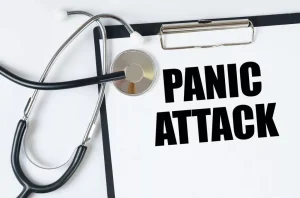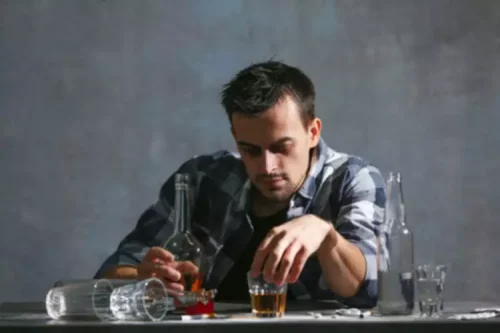
Because the incidence of chronic conditions increases with age, older Americans are especially likely to take prescription medications — often as many as 10 per day — many of which likely react adversely with alcohol. Fortunately, educating patients about the risks of combining medications with alcohol may help them avoid negative outcomes. Here, we describe briefly how alcohol and medications can interact, and we provide a few examples of common medications that could interact negatively with alcohol. We provide links to resources to help you mitigate these risks, including a consensus-developed list of potentially serious alcohol-medication interactions in older adults.
Mayo Clinic Press
If you’re not ready to approach a health care provider or mental health professional, help lines or hotlines may be a good place to learn about treatment. You can find these lines listed on the internet or in the phone book. Sometimes called the „opioid epidemic,“ addiction to opioid prescription pain medicines has reached an alarming rate across the United States. Some people who’ve been using opioids over a long period of time may need physician-prescribed temporary or long-term drug substitution during treatment.
Can Medicine Help With Alcohol Use Disorder?
„If you catch that tumor before it spreads, it’s a treatable disease,“ Morgenstern says. But if you wait, „you’re playing Russian roulette.“ The same goes for substance abuse. Other people start taking prescription drugs just to get high, perhaps in part because they have the (false) notion that prescription drugs are safer to experiment with than are illicit drugs. „They take them for recreational purposes, and then a portion of them find ‚Wow, I can’t stop using this,'“ says Jon Morgenstern, director of addiction treatment at the Columbia University Medical Center.
International Patients
Despite being aware of these harmful outcomes, many people who use drugs continue to take them, which is the nature of addiction. As a person continues to use drugs, the brain adapts by reducing the ability of cells in the reward circuit to respond to it. This reduces the high that https://ecosoberhouse.com/ the person feels compared to the high they felt when first taking the drug—an effect known as tolerance. These brain adaptations often lead to the person becoming less and less able to derive pleasure from other things they once enjoyed, like food, sex, or social activities.

- Despite manufacturer claims, these are chemical compounds rather than „natural“ or harmless products.
- Yet medications for alcohol use disorder can work well for people who want to stop drinking or drink a lot less.
- Preparing and anticipating questions will help you make the most of your appointment time.
- More intense side effects mean you might be more impaired after having one drink than you would typically be.
Therefore, a person should speak with a healthcare professional for further guidance. A healthcare professional can create a treatment plan and refer a person to specialized care if necessary. There are many treatment options available, and a doctor can Alcohol and Pills help determine the best course of action for each individual. Doctors may recommend acamprosate for people in recovery who are no longer drinking. It helps rebalance certain chemicals in the brain and may help a person manage certain withdrawal symptoms.

- Addiction is a chronic disease characterized by drug seeking and use that is compulsive, or difficult to control, despite harmful consequences.
- In reality, drug addiction is a complex disease, and quitting usually takes more than good intentions or a strong will.
- Hosted by therapist Amy Morin, LCSW, this episode of The Verywell Mind Podcast shares strategies for coping with alcohol cravings and other addictions, featuring addiction specialist John Umhau, MD.
- If you are going to drink, it’s important to know how alcohol affects you and how much is too much.
- The medications listed below are related to or used in the treatment of this condition.
- Even some herbal remedies can have harmful effects when combined with alcohol.
- Because the incidence of chronic conditions increases with age, older Americans are especially likely to take prescription medications — often as many as 10 per day — many of which likely react adversely with alcohol.
- The preoccupation stage refers to when a person becomes preoccupied with consuming alcohol next.

